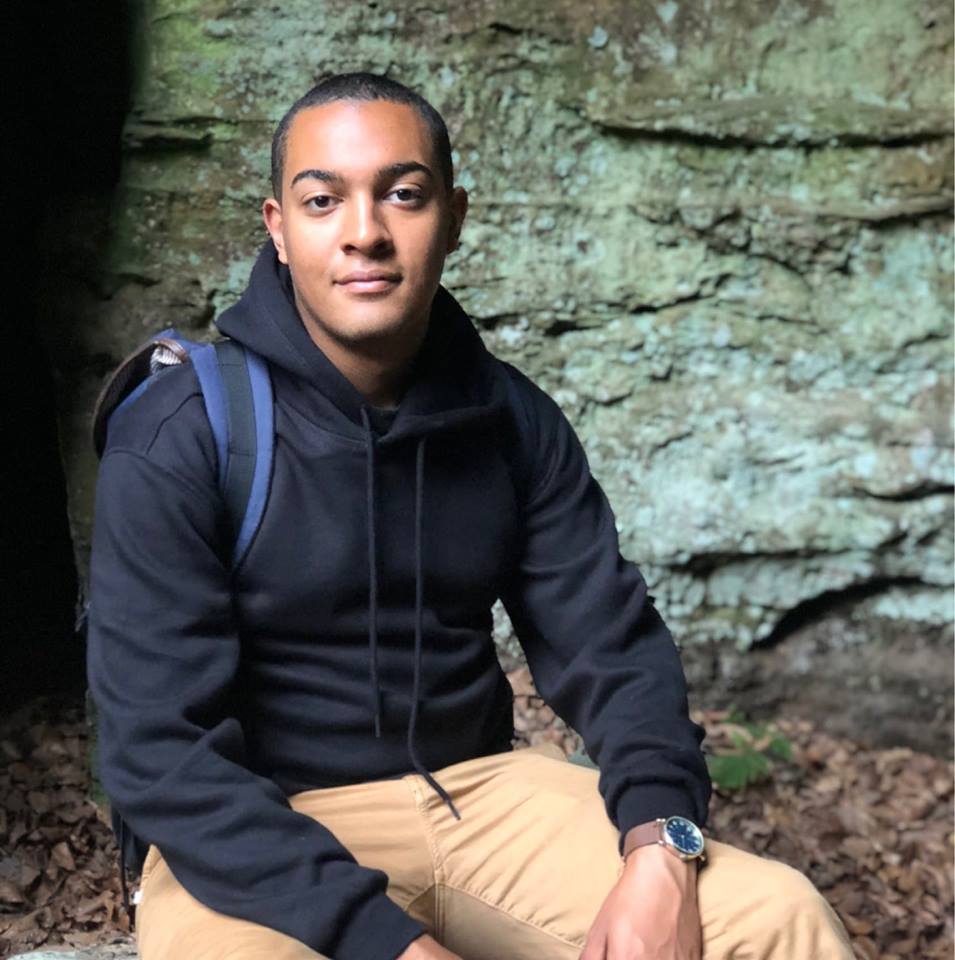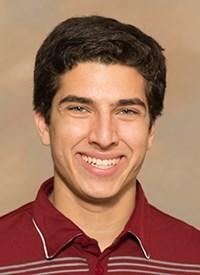The Weekly published part one of these interviews with SGA Presidential candidates, Nicholas Gregg-Rubin and Stephanie Ng in last week’s issue.
On Apr. 15, students will vote for their SGA president and representatives for the 2019-2020 academic term. Along with the 28 students running for representative positions, Andrew Braun ‘20, Jonathan Diaz ‘20, Nicholas Gregg-Rubingh ‘20, and Stephanie Ng ‘20 are vying for the spot of president, set to replace current SGA president, Karlee Makely ’19.
The Muhlenberg Weekly sat down with two presidential candidates to hear their goals, plans, and hopes for the future of SGA and Muhlenberg.
The Muhlenberg Weekly: What sets you apart from the other two candidates?
Andrew Braun: ”I think we could all do the position. I just know with me, I have a strength in being able to communicate with different parties with different agendas. Obviously in past cases sometimes the students’ agendas have not been in agreement with the administration and we’ve seen some change that a lot of people are upset about, but we just have to deal with it. I think I can create more of a symbiotic relationship between the two parties. Ultimately there hasn’t really been the engagement SGA needs to get any type of issue across the administration. While the SGA might have a ton of money at their disposal which you would think give them bargaining power, they don’t really have the full support of students behind them [so] they’re not going to be able to get anything meaningful done and they’re not going have any bargaining chips at the school.”
Jonathan Diaz: “I think what sets me apart is that I have a large network. I work at the Multicultural Center so I know the majority of people of color on campus along with being a part of Greek life so I know the other 20 percent of the people on campus. On top of that I have friends from all over from the theater department [and] from the sciences so I have a good grasp of what the student body is like, and I feel like if you’re going to have someone who represents the school you should have someone who knows the school to a certain extent.”

Jonathan Diaz, the third SGA presidential candidate. “My aim is to provide a voice for those who feel underrepresented on Muhlenbergs campus,” said the multicultural intern in his official campaign statement.
Photo courtesy of Jonathan Diaz’s Facebook page.
TMW: What is one central improvement that you would focus on as president?
AB: “I think it has to really be with the way SGA perceives itself [in order] to get any issue tackled so that would be basically my first goal, to actually get the students behind the SGA. I see it could be a really great outlet for us to get our needs across to the administration rather than where I think we are now. If you think of politics, we are like the student party, but we’re not unified in our voice.”
JD: “I think my main focus, which is pretty [broad], is I’ve noticed that morale and event attendance has been low on campus, so I feel like I want to aim and focus on that and see what’s happening and see if we can boost morale on campus somehow.”
TMW: What do you think about SGA’s new constituency program? Has it improved transparency and communication with students? How would you continue or not continue the program as president?
AB: “I think one of the hardest things to do at Muhlenberg is to get the Muhlenberg students to do anything, because honestly we’re all worked to the bone in our classes. Nobody has spare time for anything, so a lot of times, when we get an email that we have to attend something it’s almost like an insult to us, it’s like ‘I’ve given enough of my time’. As a full time student you’re working over 40, 50, 60 hours a week with studying so when somebody wants you to come in for anything to give your opinion or do a survey, you don’t want to do it generally. It’s hard, people are overworked and they want to honestly relax, so I think it’s a struggle to really get the engagement that it’s seeks. SGA can always improve to better that communication, it’s not an easy job.”
JD: “I personally really like this constituency program, because one thing SGA wants is to be more visible on campus and to show that ‘hey we’re here [and] we’re not just the bank,’ so I am all for it. I think it does need some improvements I’d say in terms of setting more events ahead of time and just getting anyone together.”

Photo Courtesy of Muhlenberg Athletics
TMW: A lot of students seem to only interact with SGA to get funding for clubs or organizations. How would you maybe improve this process and make the interactions more than just about funding?
AB: “I mean obviously the student organizations need funding to just run their day-to-day activities, but it kind of stinks in the sense that, that’s all they’re really viewed as right now, and I think it’s because there isn’t enough engagement across the board. So the only thing that’s going to strengthen the government is believing in that government, and I’ll be honest I have not been as engaged with the SGA as I wanted to be and I wondered why we haven’t had this change and I’ve gone to SGA meetings just as a guest to see how they run themselves. I mean it’s so hard, there are so many diverse groups. To unify them, I think that’s the ultimate goal; what a student government should be doing.”
JD: “I think we need to strengthen our community engagement section and try to give out more surveys, try to figure out more about what the students want, because in order to solve an issue you have to survey to assess if there is an issue and then fix it. I think we need to improve our student outreach and say, ‘Hey, we’re not just the bank, [and] if you want something in all other aspects, we’re also here.’”
TMW: Do you have any ideas or programs that you would implement to support marginalized students on campus?
Braun explained his belief that, because student voices are under-heard in school administration and SGA in general, he wants to improve student representation overall, before focusing on a specific group.
AB: “I think if the system was laid out correctly there would never be a case where people would be underrepresented.”
JD: “I’d say just going back to what I was originally saying was just talk to them, figure out what’s the root of the problem, find out what’s making them feel like they don’t have a place to belong and try to see if you can shape or do things that will bring them more into the community.”
TMW: Would you like to see more student engagement with SGA and how could you improve engagement?
AB:”I think that the best [way] would be a social media platform, some type of easy engagement. Twitter would be ideal, but I don’t think the Twitter population is even on campus right now. It seems like Facebook would be also awesome, but I know a lot of the younger kids do not use Facebook so that really only leaves Instagram which would not be the best platform. If there could be a platform like that where it wouldn’t be too excessive to use, it could be used like one of those platforms as social media. The SGA budget is absurd. We’re paying 100 dollars on an activity fee. Everyone is, regardless of scholarship, and that’s like two hundred fifty thousand dollars. I think we could use that funding, if we could create that engagement, like some type of web service, it’s not impossible. It’s not easy but I think we all care about the future of our school ultimately and as president for the school, I’d try to do this stuff. I’ll try to say ‘look we all care, this is our outlet for caring, let’s use this, lets unify.’”
JD: “I think we’ve done a good job with constituency groups. I think we’ve done a good job with attending more campus events so [SGA has] a face. Where I think we need improvement on is holding more groups accountable in terms of sections of SGA, in terms of getting things done, because every [SGA] meeting we don’t have to say anything, we can just sit back and be like ‘oh we don’t have a report to give’, but if we even have [SGA members say] ‘oh we don’t have things to report on, but this is what we’re working on’ I think that will drastically improve community engagement.”
TMW: Why do you want to be SGA president?
AB: “I truly believe that I can be a great mediator between the administration and the student body. I think I can hear that voice for the student body and then convey that to the administration. I like the liberal arts and I did not think I would at all. I’m a finance major, I like numbers, that’s the way my brain works and I got to Muhlenberg, and I started minoring in philosophy and [realized], ‘holy cow’ things can be done so many different ways. I see the students have the same ideas, from everywhere, like being in a fraternity or athletics, you meet people from all different sects of campus not really just one friend group, like theater kids, science majors business majors, music. We kind of want the same things. We’re all students, we’re affected by the same things as a whole, and I think I can hopefully create some type of system to collectivize that and use it for meaningful change.”
JD: “I’ve been on SGA for about a year now, so I’d say I don’t know everything, but I do have a good grasp of the routine [and] how things are done. So I also know, maybe in some ways, how I can change things a little bit to make it flow more smoothly, and like I said, I’m connected to a lot of different sections on the campus, so I feel like I’m well informed on what the kids feel. I work at the Multicultural Center and we’re having our block party Apr. 13., and that’s a time where we bring the community together, so I’d want to do more stuff like that, because at the block party different organizations have their own table and their different activity. I think along the lines of events similar to that where we can bring the community together, I want to strive for.”
Additional Reporting by Bryan Oliveira





















